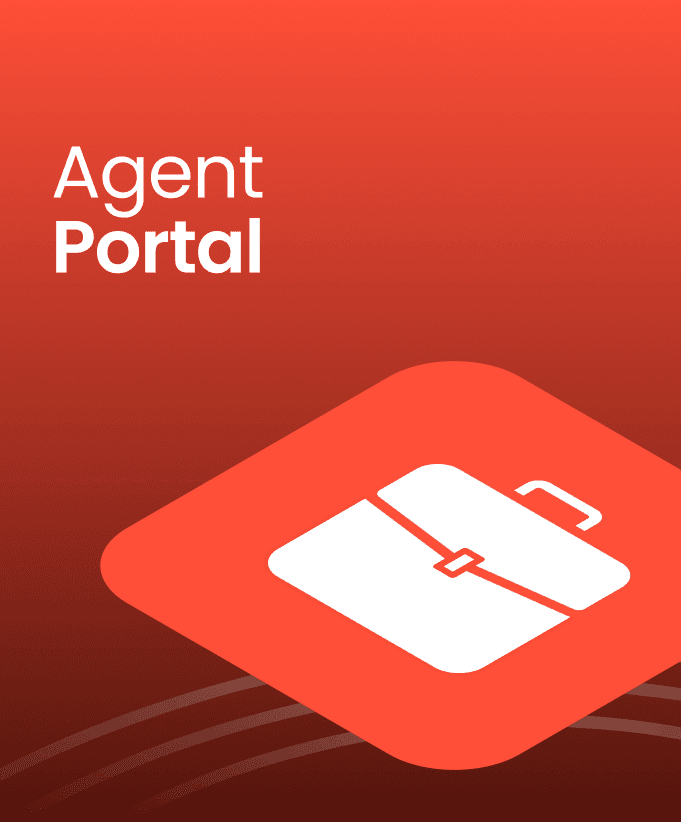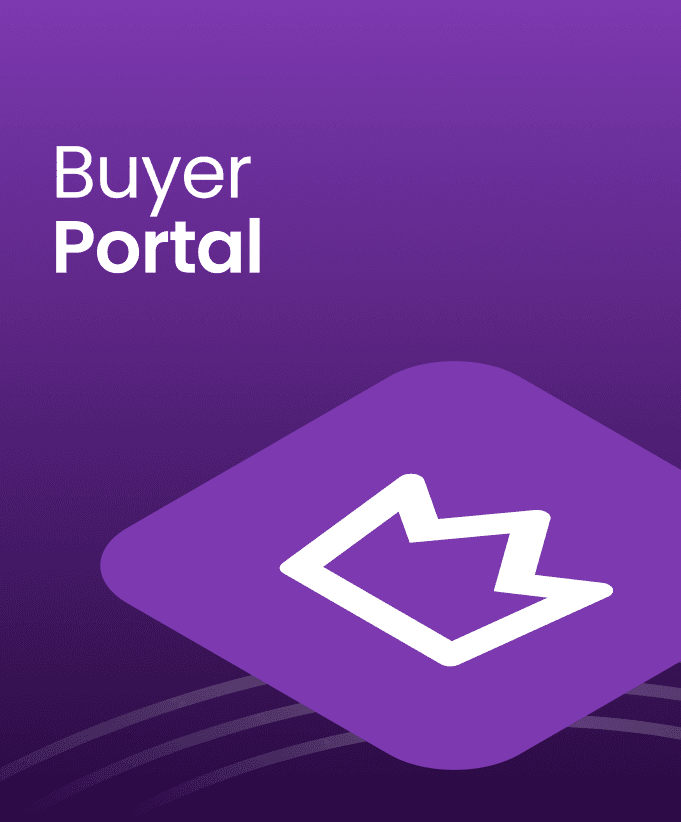
Sep 20, 2023
Top Features of a Powerful Real Estate CRM (ebook)
As a real estate professional, you know that success in the industry is all about building strong relationships with clients, staying organized, and staying ahead of the competition. That's where CRM software comes in. By implementing a CRM solution for your business, you can gain a competitive edge, streamline your sales processes, and take your real estate empire to the next level.
In this eBook, we'll explore the benefits of implementing a CRM for real estate agents, and how it can help you manage your properties, streamline your sales processes, customize your workflows, integrate with other tools, manage your data, and keep your business secure.
Simplifying Property Management with a Real Estate CRM
Managing properties is a critical aspect of the real estate business, and a CRM can greatly simplify this process. By storing all property listings in one central location, agents can easily track important details such as price, location, and status. This can help to improve efficiency and reduce the chance of errors or oversights.
The Importance of a CRM in Today's Real Estate Market
According to a study by the National Association of Realtors, 88% of home buyers use online resources to search for properties while 44% of buyers start their search online. This means that it's more important than ever for real estate agents to have a system in place to manage their property listings and stay organized.
Efficient Property Management with a Real Estate CRM
With a CRM, agents can quickly search and filter through listings based on criteria such as price range, location, and property type. This can help them to find the right properties for their clients more quickly and efficiently. Additionally, a CRM can allow agents to track offers, view property histories, and manage communication with clients all in one place.
Staying Competitive with a CRM Solution
As the NAR notes, "In a world where consumers demand instantaneous results, agents and brokers must keep up with technology to be competitive." A CRM can help real estate agents do just that, by providing a centralized system for managing their properties and staying organized.
Benefits of Using a Real Estate CRM for Property Management
Using a CRM for property management offers several benefits to real estate agents. These include improved efficiency, enhanced organization, better communication, competitive advantage, and improved customer service.
Streamlining Sales Processes with a Real Estate CRM
Streamlining sales processes is another important benefit of using a CRM in the real estate industry. By automating tasks such as lead generation, follow-up, and contract management, agents can free up more time to focus on building relationships with clients and closing deals.
Automated Workflows for Improved Efficiency
A CRM solution offers automated workflows that help to streamline sales processes, from lead generation to closing the deal. This means that agents can spend more time focusing on building relationships with clients, and less time on administrative tasks.
Reducing the Time and Effort Required for Sales Processes
According to a survey by the NAR, the most challenging tasks for agents are "finding the right property for their clients" and "understanding and managing the paperwork." Furthermore, by automating these tasks through a CRM, agents can reduce the time required to manage their sales processes.
Improved Communication and Collaboration
A CRM can also help to improve communication and collaboration between agents and their clients. By providing a centralized platform for managing client interactions, agents can easily track communications and ensure that nothing falls through the cracks. What's more, this can help to build trust and confidence with clients, ultimately leading to more successful deals.
Leveraging Technology for Smarter Work
As noted by the NAR, "Technology has enabled agents to work smarter, not harder, and the smartest agents are leveraging technology to its fullest extent." By leveraging a CRM to streamline their sales processes, real estate agents can improve efficiency. They can save time, and ultimately close more deals.
Improved Competitiveness Through Customization
A key benefit of using a CRM solution in the real estate industry is the ability to customize the software to fit your unique business needs. Customization allows businesses to tailor their CRM solution to match their specific requirements, improving efficiency, productivity, and overall business performance.
Accenture, in a study, found that "customization has become a key driver of competitiveness in today's business world." By allowing businesses to customize their CRM solution to their specific needs, a CRM can help improve competitiveness. In addition, it can provide businesses with a strategic advantage in their market.
Improved User Experience Through Custom Fields, Reports, and Branding
Customization allows businesses to create custom fields, reports, and branding. These can help to improve the user experience and make it easier for agents to use the software effectively. Moreover, by providing a user-friendly interface that matches their unique requirements, businesses can ensure that their agents work more efficiently. Ultimately leading to better business results.
Better Tracking and Management of Sales Processes
Customization also helps businesses to better track and manage their sales processes, as well as analyze their performance data. By creating custom fields and reports, businesses can track the metrics that matter most to their business, such as lead generation, conversion rates, and overall revenue. This helps businesses to make data-driven decisions that can improve their sales processes and ultimately lead to better business outcomes.
Driving Productivity and Delivering Insights
Salesforce notes that "Customization is a key ingredient in creating a CRM that drives productivity and delivers the insights you need to grow your business." By leveraging the customization capabilities of a CRM solution, businesses in the real estate industry can create a software solution that meets their unique needs and helps them to achieve their business goals. Customization is a powerful tool for businesses that want to gain a competitive edge and drive better results.
The Power of Integration
Integration is an essential feature of a CRM solution, which allows businesses to connect their CRM with other tools to create a more streamlined workflow and enhance productivity.
The Benefits of Integration
According to a report by Aberdeen Group, integrating CRM with other applications and data sources is crucial for unlocking the full potential of the technology. Integration can help businesses to achieve a more holistic view of their customers, streamline their sales and marketing processes, and ultimately lead to increased sales and revenue.
Integrating with Marketing Automation Software
Integrating a CRM solution with marketing automation software can help businesses to improve lead generation and lead nurturing processes, ultimately leading to increased sales and revenue. By connecting the CRM solution to other tools such as email marketing software, businesses can also create more targeted and personalized communication with their clients.
Improving Data Accuracy and Reliability
Integration can help businesses to reduce manual data entry and minimize errors, ultimately leading to improved data accuracy and reliability. By automating data transfer between different systems, businesses can ensure that their data is consistent and up-to-date across all their tools.
The Importance of Integration
As noted by Salesforce, integration helps a CRM become the hub of a business's sales and marketing technology stack. By leveraging the integration capabilities of a CRM solution, businesses in the real estate industry can create a more connected and efficient technology ecosystem, ultimately leading to improved business performance.
Data Management to Drive Decisions
A CRM solution provides data management capabilities that enable businesses to organize, store, and analyze data to drive business decisions. This means that businesses can make better-informed decisions based on data, and have a better understanding of their business performance.
The Importance of Data Management in the Real Estate Industry
Data management is a crucial benefit of using a CRM solution in the real estate industry. By providing data management capabilities, a CRM solution can help businesses to organize and store their data, as well as analyze it to drive better business decisions.
Benefits of CRM Data Management
According to a report by Salesforce, "Data is the lifeblood of your CRM system." By leveraging the data management capabilities of a CRM solution, businesses can ensure that their data is accurate, consistent, and up-to-date. This can ultimately lead to improved decision-making, as businesses can rely on their data to make informed choices about their sales and marketing strategies.
Analytics and Reporting Capabilities of a CRM solution
In addition, a CRM solution can provide businesses with powerful analytics and reporting capabilities. By analyzing their data, businesses can gain insights into key metrics such as lead conversion rates, deal sizes, and sales cycle lengths. This can help businesses to identify areas for improvement. Furthermore, they can optimize their sales and marketing processes for greater efficiency and effectiveness.
Leveraging CRM Data Analysis to Gain Insights
As noted by TechTarget, "CRM data analysis can help organizations identify trends, pinpoint areas where they need to improve, and gain insight into their customers and prospects." By leveraging the data management capabilities of a CRM solution, businesses can gain a deeper understanding of their customers. They can then use this information to drive better business outcomes.
Overall, data management is a critical benefit of using a CRM solution in the real estate industry. By organizing, storing, and analyzing their data, businesses can make better-informed decisions and drive better business performance.
Mobile App for Real-time Data Management
A CRM solution offers a mobile app that allows users to access their data and manage their business on the go. This means that agents can stay connected with clients and manage their business from anywhere, at any time.
Growing Demand for Mobile CRM Solutions
The availability of mobile apps for CRM solutions has become increasingly important in today's business landscape, where remote work and on-the-go access are essential. According to a report by Grand View Research, the global CRM software market size is expected to reach $114.4 billion by 2027, with a growing demand for mobile CRM solutions.
Increased Productivity and Efficiency
Having a mobile app for a CRM solution allows real estate agents to access client information and property data on the go. This can lead to increased productivity and efficiency. This is especially important for agents who are frequently on the road, visiting properties, and meeting with clients.
Ease of Access to Important Information with a CRM Solution
With a CRM mobile app, agents can easily access important information, such as client contact details, property details, and sales data. They can also update and manage their tasks and appointments. They can view their sales pipeline, and communicate with clients via email or phone, all from their mobile devices.
Better Client Engagement and Satisfaction with a CRM Solution
In addition, having a mobile CRM app can also lead to better client engagement and satisfaction. According to a survey by Salesforce, 68% of customers said that they expect companies to offer a connected experience across channels, including mobile devices. Therefore, offering a mobile app for a CRM solution can help real estate agents to stay connected with clients and provide a better customer experience.
Real Estate CRM and Security
Data security is a critical concern for businesses of all sizes and industries. It is particularly important for those in the real estate industry who handle sensitive client information. A CRM solution can offer robust security features to ensure that all data is secure and protected from unauthorized access.
Real Estate CRM and Security Features
These security features can include data encryption, multi-factor authentication, and role-based access control, among others. With these features in place, businesses can trust that their data is safe and secure. They can comply with industry regulations and standards.
Data Breaches
According to a report by Verizon, 28% of all data breaches in 2020 involved small businesses. The report also found that 61% of these breaches involved stolen or compromised credentials. This highlights the importance of having strong security measures in place to protect business and client data.
Compliance
A CRM solution can help real estate businesses comply with industry regulations and standards, such as the General Data Protection Regulation (GDPR). Moreover, by implementing a CRM solution with robust security features, businesses can protect themselves and their clients from potential data breaches and cyber attacks.
API for Superior Integration
An API, or application programming interface, is a set of programming instructions and protocols for accessing a web-based software application.
Integration with Other Tools and Systems
With a CRM solution that offers an API, businesses can integrate their CRM with other tools and systems. This creates a more efficient and streamlined workflow. This can lead to improved productivity and overall business performance.
Market Growth and Demand
According to a report by Grand View Research, the global CRM software market size is expected to reach $114.4 billion by 2027. This growth is driven by the increasing demand for automation and the need for organizations to improve customer relationships. Additionally, a report by Allied Market Research states that the increasing adoption of cloud-based CRM solutions and the rising use of mobile devices are expected to drive the growth of the CRM market.
Real Estate CRM and the Importance of Staying Competitive
Having a CRM solution with an API is becoming increasingly important for businesses looking to stay competitive in the market. According to a study by MuleSoft, companies with integrated systems are 46% more likely to be top-performing businesses than those with disconnected systems. This highlights the importance of integrating various tools and systems to create a more efficient and streamlined workflow.
Conclusion
In conclusion, leveraging the power of a CRM is essential for any real estate business looking to grow their empire. By implementing a CRM solution, businesses can enjoy a range of benefits. These include:
Managing properties in one place,
streamlining sales processes,
customization to fit unique business needs
integration with other tools,
data management capabilities,
a mobile app for on-the-go access,
robust security features,
and an API for custom integrations.
With these benefits, businesses can make better-informed decisions, increase efficiency, and ultimately drive growth.
As the real estate industry continues to evolve, a CRM solution is a critical tool for businesses that want to stay ahead of the competition. In response to the competitive pressure in the real estate landscape to upgrade with innovative technological solutions, Anthony Nathanael, CEO of Qobrix states 'With a state-of-the-art CRM at the core of its operations, Qobrix’s services have allowed our clients to experience positive results in terms of being much more organized, saving time, and boosting their revenue.' With all of these benefits, it's no wonder that many businesses are turning to CRM solutions to grow their real estate empires.
Sign up to our
Blog
Get the latest industry news, product updates and more. Plus receive our FREE real estate hashtags cheatsheet!








